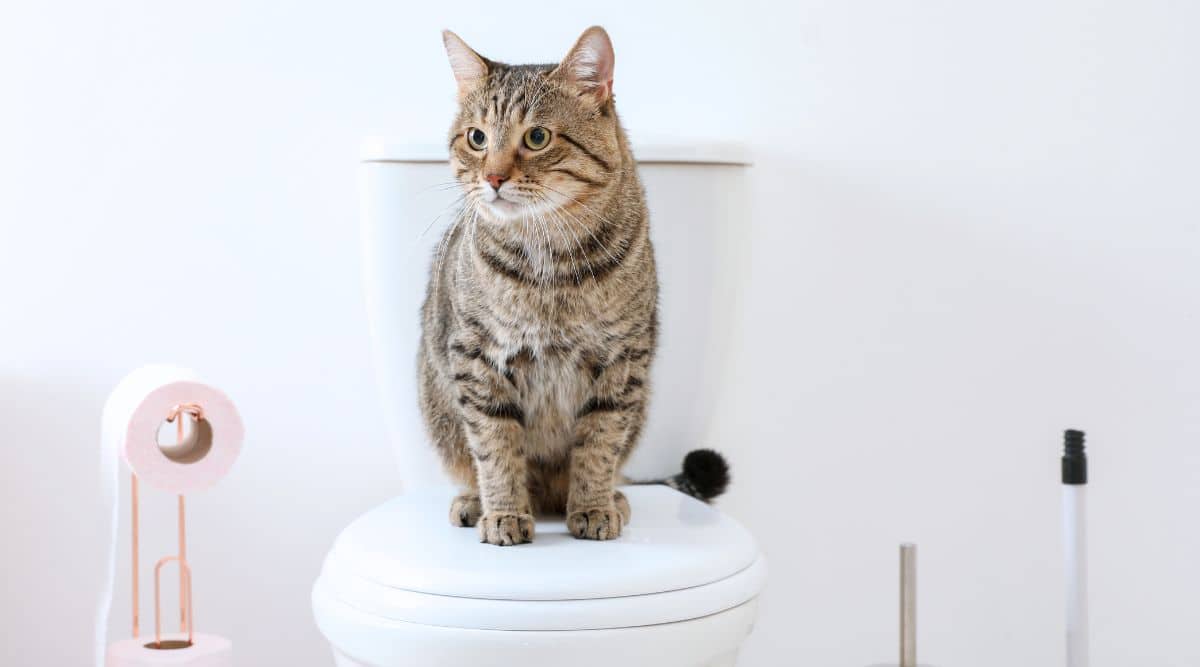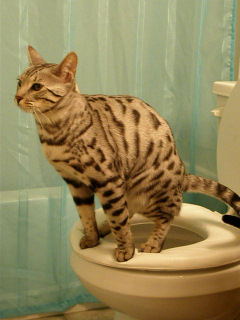Why You Should Never Flush Cat Poop Down Your Toilet - Crucial Information
Why You Should Never Flush Cat Poop Down Your Toilet - Crucial Information
Blog Article
We have stumbled upon the article pertaining to Don’t flush cat feces down the toilet listed below on the web and accepted it made sense to talk about it with you in this article.

Introduction
As feline proprietors, it's necessary to be mindful of exactly how we throw away our feline friends' waste. While it may seem hassle-free to flush pet cat poop down the toilet, this practice can have damaging repercussions for both the setting and human health and wellness.
Ecological Impact
Purging cat poop presents hazardous virus and bloodsuckers right into the water supply, posing a significant threat to aquatic environments. These contaminants can adversely impact aquatic life and concession water high quality.
Health Risks
In addition to environmental issues, purging cat waste can likewise present health and wellness risks to people. Cat feces may consist of Toxoplasma gondii, a bloodsucker that can trigger toxoplasmosis-- a possibly serious ailment, especially for pregnant women and people with weakened immune systems.
Alternatives to Flushing
Fortunately, there are safer and more liable methods to get rid of cat poop. Think about the following options:
1. Scoop and Dispose in Trash
The most usual method of throwing away feline poop is to scoop it right into a biodegradable bag and toss it in the trash. Be sure to make use of a committed clutter scoop and take care of the waste immediately.
2. Usage Biodegradable Litter
Opt for biodegradable pet cat trash made from products such as corn or wheat. These litters are eco-friendly and can be safely dealt with in the garbage.
3. Hide in the Yard
If you have a yard, think about burying feline waste in an assigned area far from vegetable gardens and water sources. Be sure to dig deep adequate to prevent contamination of groundwater.
4. Set Up a Pet Waste Disposal System
Buy a pet dog waste disposal system especially developed for cat waste. These systems make use of enzymes to break down the waste, minimizing odor and environmental effect.
Final thought
Accountable family pet ownership extends past supplying food and shelter-- it also involves proper waste monitoring. By refraining from flushing pet cat poop down the commode and choosing alternative disposal techniques, we can reduce our ecological impact and safeguard human wellness.
Why You Should Never Flush Cat Poop Down the Toilet
A rose by any other name might smell as sweet, but not all poop is created equal. Toilets, and our sewage systems, are designed for human excrement, not animal waste. It might seem like it couldn’t hurt to toss cat feces into the loo, but it’s not a good idea to flush cat poop in the toilet.
First and foremost, assuming your cat uses a litter box, any waste is going to have litter on it. And even the smallest amount of litter can wreak havoc on plumbing.
Over time, small amounts build up, filling up your septic system. Most litter sold today is clumping; it is made from a type of clay that hardens when it gets wet. Ever tried to scrape old clumps from the bottom of a litter box? You know just how cement-hard it can get!
Now imagine just a small clump of that stuck in your pipes. A simple de-clogger like Drano isn’t going to cut it. And that means it’s going to cost you big time to fix it.
Parasitic Contamination
Believe it or not, your healthy kitty may be harboring a nasty parasite. Only cats excrete Toxoplasma in their feces. Yet it rarely causes serious health issues in the cats that are infected. Most people will be fine too if infected. Only pregnant women and people with compromised immune systems are at risk. (If you’ve ever heard how women who are expecting are excused from litter cleaning duty, Toxoplasma is why.)
But other animals may have a problem if infected with the parasite. And human water treatment systems aren’t designed to handle it. As a result, the systems don’t remove the parasite before discharging wastewater into local waterways. Fish, shellfish, and other marine life — otters in particular — are susceptible to toxoplasma. If exposed, most will end up with brain damage and many will die.
Depending on the species of fish, they may end up on someone’s fish hook and, ultimately on someone’s dinner plate. If that someone has a chronic illness, they’re at risk.
Skip the Toilet Training
We know there are folks out there who like to toilet train their cats. And we give them props, it takes a lot of work. But thanks to the toxoplasma, it’s not a good idea.

I recently found that write up about How to Dispose of Cat Poop and Litter Without Plastic Bags while surfing around the web. Appreciated our article? Please share it. Help someone else find it. Thank you for your time. Kindly check our website back soon.
Schedule Now! Report this page